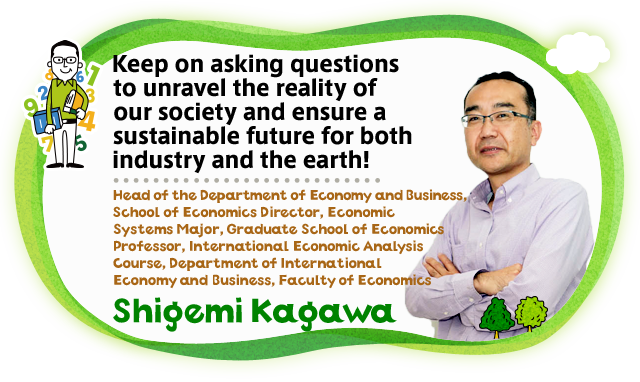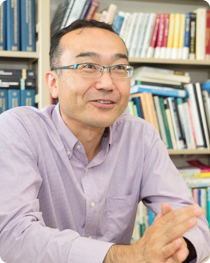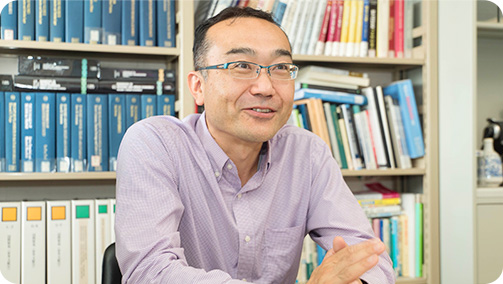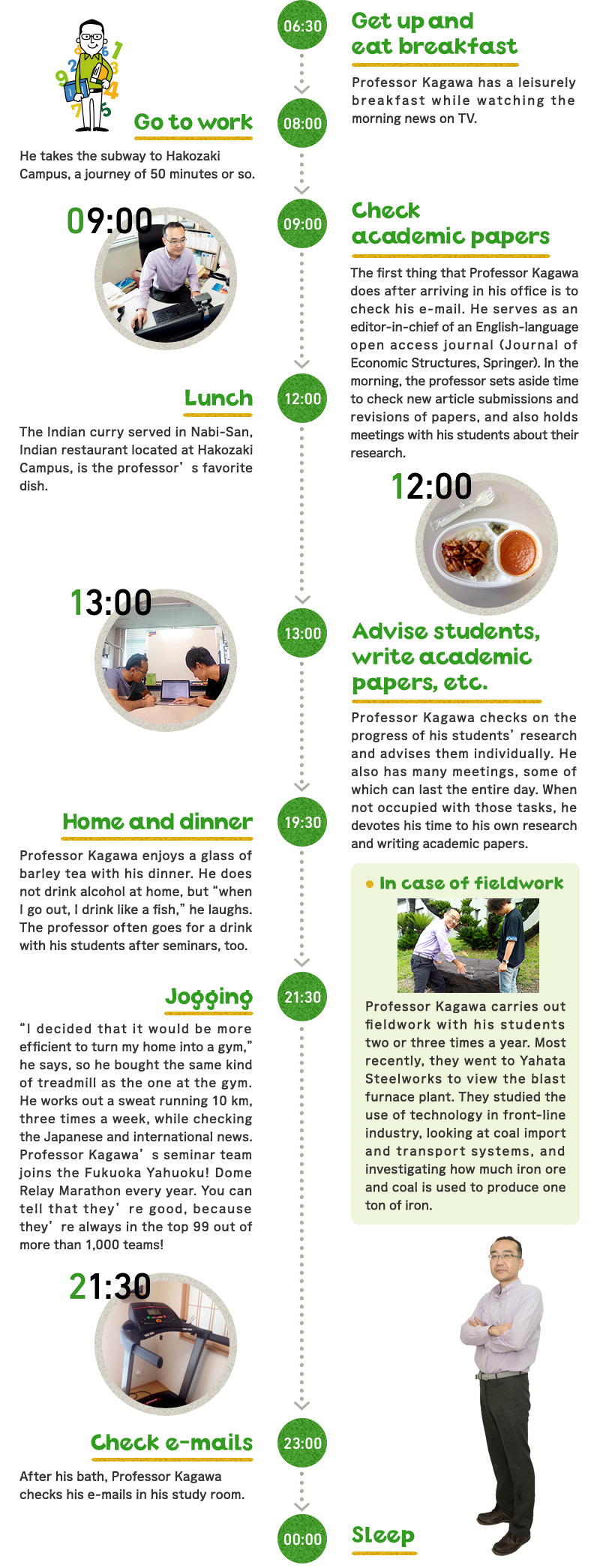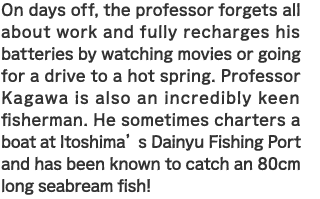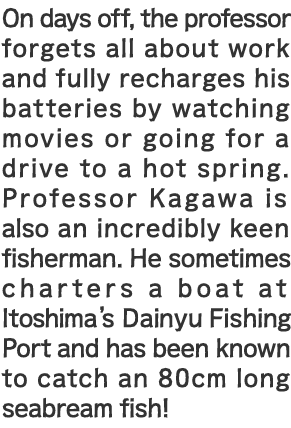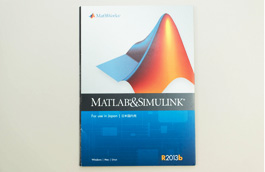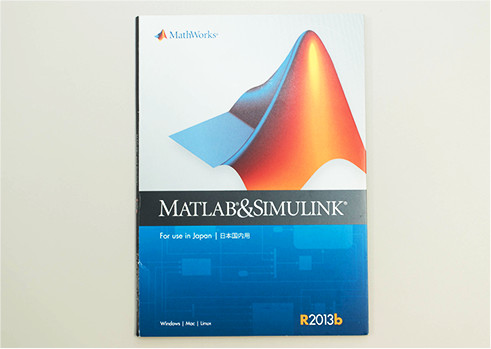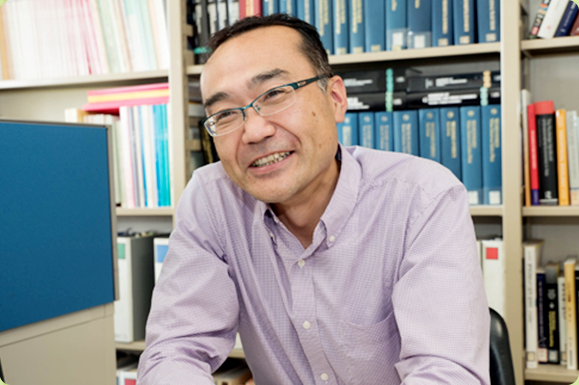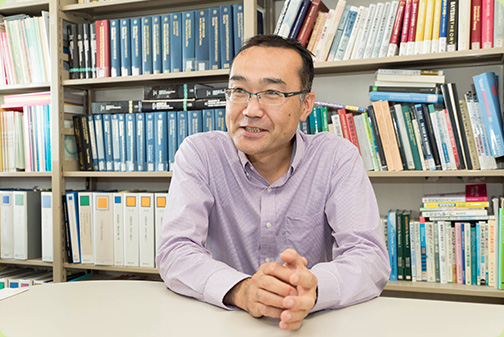 At Professor Kagawa's research lab where every wall is covered in bookshelves. "It is not easy to find the answer to a question, and that makes research very interesting," he said passionately.
At Professor Kagawa's research lab where every wall is covered in bookshelves. "It is not easy to find the answer to a question, and that makes research very interesting," he said passionately.
 A copy of the journal article written by Wassily Leontief, winners of the Nobel Memorial Prize in Economic Sciences. "How astonishing it is to express the society with mathematical formula!" he thought and this classic paper brought him into the field of Economics.
A copy of the journal article written by Wassily Leontief, winners of the Nobel Memorial Prize in Economic Sciences. "How astonishing it is to express the society with mathematical formula!" he thought and this classic paper brought him into the field of Economics.
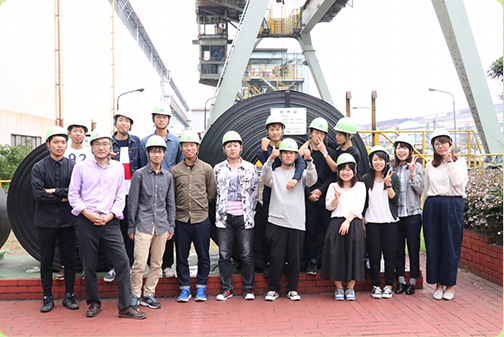 He carries out fieldwork two or three times in a year as he believes it is important to see things with his own eyes.
He carries out fieldwork two or three times in a year as he believes it is important to see things with his own eyes.
 At Professor Kagawa's research lab where every wall is covered in bookshelves. "It is not easy to find the answer to a question, and that makes research very interesting," he said passionately.
At Professor Kagawa's research lab where every wall is covered in bookshelves. "It is not easy to find the answer to a question, and that makes research very interesting," he said passionately.
The problem that we face today is that, as well as helping to sustain our lifestyle, industry is a major cause of global destruction. Many companies are striving to reduce their CO2 emissions to be more environmentally friendly, but the reality is that we still cannot break out of our economic cycle of mass production and mass consumption of products that impose a heavy burden on the environment. To better understand this social reality, we must think about the sustainability of industry itself. My research involves investigating economic systems from a variety of perspectives, to see whether there might be a system that enables industry to develop sustainably.
 A copy of the journal article written by Wassily Leontief, winners of the Nobel Memorial Prize in Economic Sciences. "How astonishing it is to express the society with mathematical formula!" he thought and this classic paper brought him into the field of Economics.
A copy of the journal article written by Wassily Leontief, winners of the Nobel Memorial Prize in Economic Sciences. "How astonishing it is to express the society with mathematical formula!" he thought and this classic paper brought him into the field of Economics.
Take hybrid cars, for instance. They have high fuel efficiency and low CO2 emissions, so they give the impression of being kind to both the household budget and the planet. But how much CO2 is emitted in the course of mining the resources, processing the materials, and manufacturing the parts required to build a single car, and to transport all those by ship or truck? In addition, if fuel efficiency (km/l) increases, gasoline costs decrease through the fuel efficiency improvement, increasing the distance traveled by the car and thereby actually increasing the volume of gasoline consumption. Policies such as eco-car subsidies increase the number of people who buy new cars, so they actually have the potential to cause CO2 emissions to rise. So when you look at the product life cycle of these cars overall, do they really cut CO2? Can you truly say that they are environmentally friendly?
 He carries out fieldwork two or three times in a year as he believes it is important to see things with his own eyes.
He carries out fieldwork two or three times in a year as he believes it is important to see things with his own eyes.
My research covers not only the production side, but also sustainable behavior analysis and the product life cycle from a consumer perspective. For example, what would you do if your refrigerator broke down and you were told that it would cost ¥100,000 to fix? You would give up on it and buy a new one, wouldn't you? However, if the manufacturer offered a long warranty and the repair was therefore free, you would probably continue to use it. That would be better for the environment and more economic. But if you did that, the number of refrigerators that companies produce would fall — as would their profits, of course. Accordingly, there is a need to investigate the sustainability of industry from multiple directions simultaneously.
In the international community, there is also the question of how countries should cooperate and work in partnership to reduce and mitigate greenhouse gas emissions and atmospheric pollutants. Hydrogen and other alternative energy sources are currently undergoing research and development, but what environmental and economic effects will they have once their use becomes widespread? This issue is likely to be of growing importance in the future. It is not just about producing research output; it is necessary to condense your findings and get them reflected in specific policies, so that action can be taken. You need to lay the foundations to facilitate discussions that involve the stakeholders who hold the key to building a sustainable industrial system, and then put the specific fruits of those discussions to use in effective technology policies. Another of my roles — indeed, my mission — is to conduct research focused on demand policies and waste recycling policies. Once applied, I hope that the study will be effective in alleviating the environmental burden arising from mass consumption to some extent, however small.


The biggest attractions for me are the fact that the topics of my research emerge from simple questions about daily life in the world around us and the possibility that an answer that I discover might solve a social problem. We make things, we consume them, and then we throw them away. Although our economy is very simple, if we introduce the concepts of demand and supply into it, complex questions arise. For example, you have to make actual calculations and carry out analysis focusing on things such as the current level of CO2 emissions and the CO2 emissions after the policy introduction in order to find out the effects. Depending on the final calculation results, policies that seemed good for the environment at first glance had actually been bad for it. When you make a discovery like that, this makes it really exciting. Every day, I have a conversation with the data and I feel excited, wondering which way the results will go. Results will be out of my hands once they are released; you will just be thrilled that these results will become policies to be implemented which will influence the Japanese economy. I think that this is a field of study that allows you to really taste the adventure of being a researcher.






